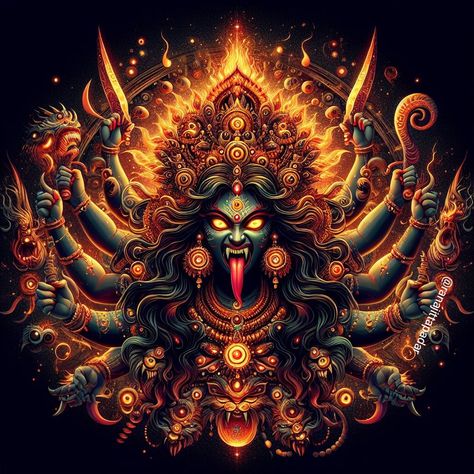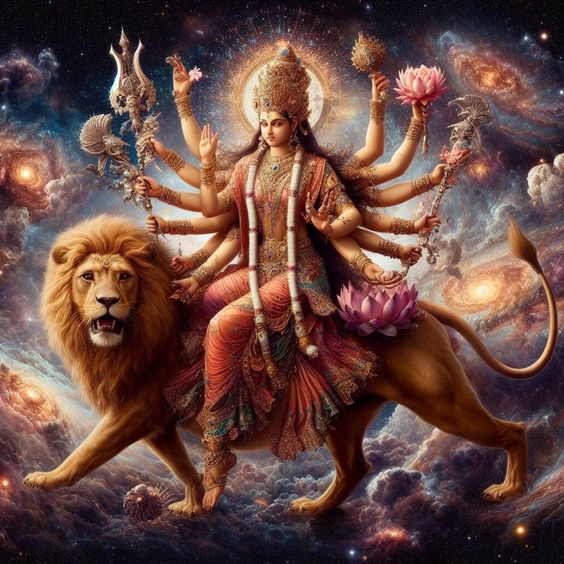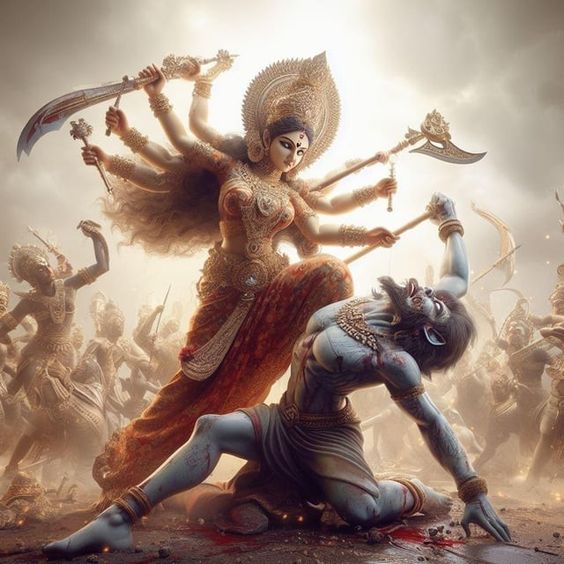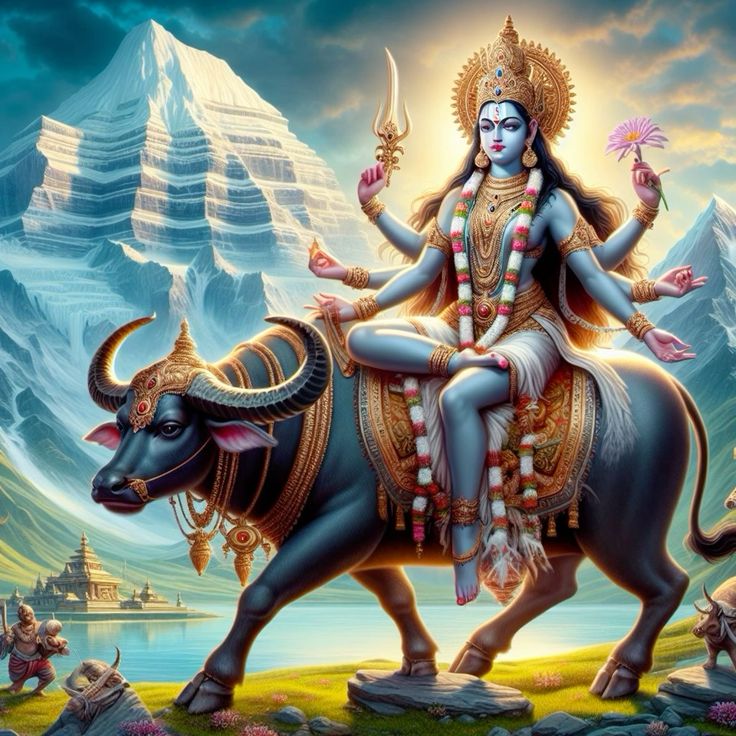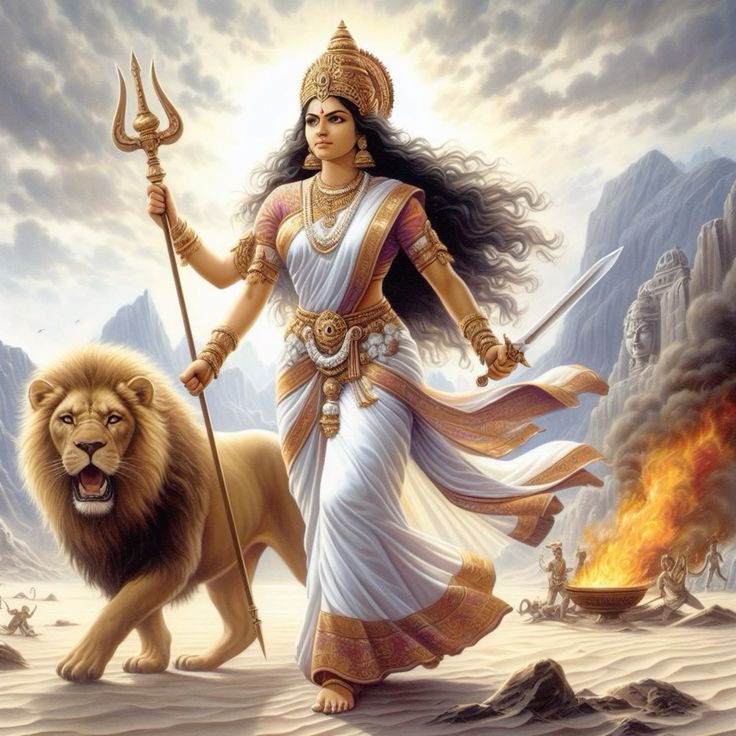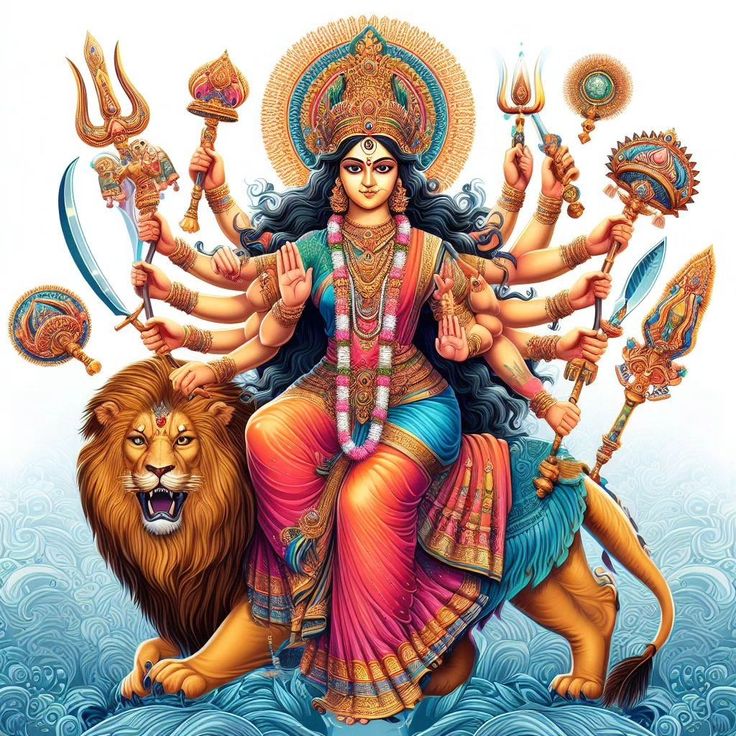Shakt( शाक्त )
Shakt, a prominent tradition within Sanatan, venerates the divine feminine principle as the ultimate reality and creative force of the universe. Rooted in ancient scriptures and evolving through centuries of philosophical and devotional practices, Shakt celebrates a rich tapestry (varieties) of goddess worship, rituals, and theological interpretations.
Here, we delve into the essence (importance) of Shakt, exploring its origins, core beliefs, major goddesses, and enduring significance in Hindu spirituality.
In Shakt, the feminine aspect of the divine is emphasized (focus attention on), with the goddess revered as the supreme deity. Unlike other Hindu traditions that predominantly worship male deities, Shakt places women at the forefront, recognizing their inherent power and divinity.
Shaktism continues to thrive as a vibrant and dynamic tradition, adapting to changing social, cultural, and religious landscapes. Its teachings on female empowerment, compassion, and spiritual liberation resonate with people of diverse backgrounds, inspiring a renewed interest in goddess worship and devotional practices.
ShaktiAt the heart of Shakt lies the concept of Shakti, meaning "power" or "energy." Shakti is the dynamic, creative force that pervades the cosmos, manifesting in various forms and expressions.
Central to Shakt is the worship of Devi, also known as Adi Parashakti, the primordial goddess from whom all other goddesses emanate. Devi is the ultimate reality, encompassing both the transcendent (otherworldly) and immanent (fundamental) aspects of existence. She is revered as the creative force behind the universe, symbolizing the cosmic energy that sustains and transforms all life.
The concept of Shakti underscores the interconnectedness of all beings and the inseparable relationship between the material and spiritual realms. By recognizing the divine presence in every aspect of existence, Shakt fosters (nurtures) a deep sense of reverence (admiration) for all life and a profound appreciation for the sacredness (godliness) of the natural world.
Widely known forms of Shakti
Among the myriad (countless) forms of Devi worshipped in Shakt, several goddesses hold prominent positions in the pantheon.
Durga, the warrior goddess, is celebrated for her courage and valor in vanquishing demons and restoring cosmic balance.
Kali, the fierce and formidable goddess of destruction, embodies the power of transformation and liberation from ignorance and attachment.
Lakshmi, the goddess of wealth and prosperity, bestows abundance and fortune upon her devotees.
Saraswati, the goddess of knowledge and arts, inspires creativity and learning.
Rituals and festivals play a vital role in Shakt, providing devotees with opportunities to express their devotion and gratitude to the goddesses. Through rituals, prayers, and devotional practices, followers of Shakt seek to connect with these goddesses, invoking their blessings for spiritual growth, worldly success, and liberation from suffering.
Navaratri, a nine-night festival dedicated to Devi, is celebrated with fervor and devotion across India, with elaborate rituals, music, dance, and fasting. During Durga Puja, devotees honor Goddess Durga through elaborate ceremonies, processions, and cultural performances, reaffirming their faith and devotion to the divine mother.
